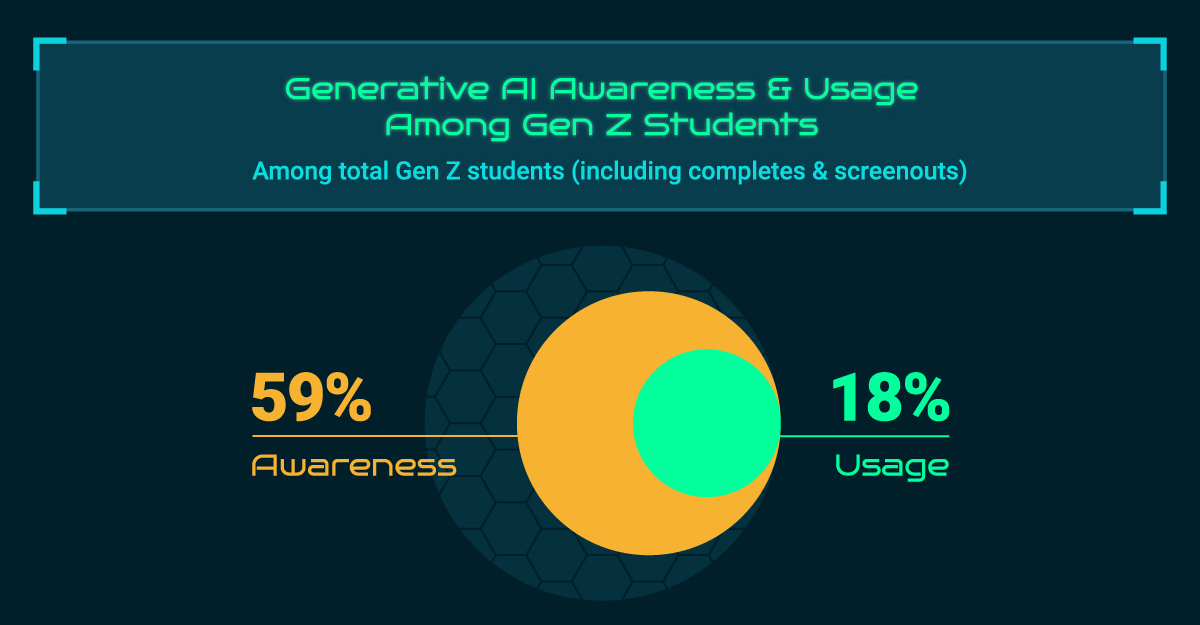According to recent research conducted by the Pew Research Center in 2023, 52% of Americans feel "more concerned than excited" about the use of AI in daily life, compared to 37% in 2021 — an increase of 15 percentage points.

A May 2023 survey of Gen Z students conducted by Touchstone Research shows how students perceive generative artificial intelligence, how they use it, and what they’re using the tools for — and college students are more likely to be using the tools for school work than younger students.
Educause recently released its "2023 Students and Technology Report: Flexibility, Choice, and Equity in the Student Experience," which looks at findings in three key areas: how to support students living on- and off-campus, how students shape their higher education based on market pressures, and how accessibility impacts student education choices.
According to data from the 2019-20 NCES National Postsecondary Student Aid Study (NPSAS), 72% of undergraduate students received some form of financial aid, and of those, 40% received Pell Grants, up from 39% in 2015-16. The average amount of aid overall was $14,100.
In its report, "State of AI in Education," ed tech company Quizlet found that teachers overall are better champions of AI than their students in recognizing its value.

The WICHE (Western Interstate Commission for Higher Education) Cooperative for Educational Technologies (WCET) conducted a national survey in April 2023 that showed colleges and universities have been slow to strategize and implement AI tools campuswide.
Education, corporate, and government chief information officers globally are decisively adopting generative AI as a major part of their tech strategy. That was the conclusion reached in the recent MIT Technology Review Insights report, "The Great Acceleration: CIO Perspectives on Generative AI."
Cengage Group's third annual employability report, "AI Joins the Workforce," asked employers and graduates questions about how AI is impacting job skills requirements and whether graduates feel prepared for them. Their responses suggest a "quickly shifting employment landscape" of different hiring priorities, the report noted.
Generative AI tools such as ChatGPT and Google Bard have cracked the top-10 list of emerging risks for enterprises, according to a new report by research firm Gartner.
In a new report titled “Expanding Student Access to Work-Based Learning: Federal Policy Recommendations,” education research organization Aurora Institute calls for policy-makers to “let go of the notion that education has to be a linear, time-bound sequence of learning that occurs only within formal education institutions.”